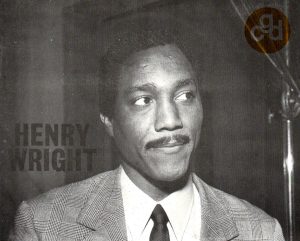Podcast: Play in new window | Download (Duration: 1:40:01 — 112.0MB) | Embed
Subscribe: Spotify | TuneIn | RSS | More
Today’s episode is first and foremost a tribute to a forgotten African American trailblazer, the pop singer Henry Wright, born in 1933, who, in the late fifties, claimed Italy as his adoptive country after touring there as a vocal soloist with Lionel Hampton. With a voice as suave and seductive as any of the great crooners of the 1950s and 1960s, Henry Wright first came to international prominence as the voice on the record to which Sophia Loren performed her legendary striptease in the 1962 film Ieri, oggi, domani [Yesterday, Today and Tomorrow]. He went on to make a great impact on Italian pop music throughout the 1960s. Your fearless podcaster discovered this fascinating singer almost by accident sometime in the past year and he (that is, I) have been collecting his rare and valuable recordings which I am thrilled to share with my listening public. Many of these songs exist in earlier versions, either from the Great American Songbook, from Italian films, from early American singers of R&B, from Italian pop stars of the 1950s, even from Viennese operetta! So I had the idea of playing those original versions alongside Henry Wright’s recordings. Thus you will encounter singers like Ricky Nelson, Peggy Lee, Tony Dallara, Peter Alexander, Mina, Petula Clark, Vittorio de Sica (who in his acting days was an Italian matinee idol!) and even opera legends Miguel Fleta and Richard Tauber. It’s a fascinating episode (if I do say so myself!) and I am thrilled beyond words to introduce the seductive, charming, compelling Henry Wright to my listeners. The episode begins with memorial tributes to recently departed pop music greats Tony Bennett and Sinéad O’Connor.
Countermelody is a podcast devoted to the glory and the power of the human voice raised in song. Singer and vocal aficionado Daniel Gundlach explores great singers of the past and present focusing in particular on those who are less well-remembered today than they should be. Daniel’s lifetime in music as a professional countertenor, pianist, vocal coach, voice teacher, and journalist yields an exciting array of anecdotes, impressions, and “inside stories.” At Countermelody’s core is the celebration of great singers of all stripes, their instruments, and the connection they make to the words they sing. By clicking on the following link (https://linktr.ee/CountermelodyPodcast) you can find the dedicated Countermelody website which contains additional content including artist photos and episode setlists. The link will also take you to Countermelody’s Patreon page, where you can pledge your monthly support at whatever level you can afford. Bonus episodes available exclusively to Patreon supporters are currently available and further bonus content including interviews and livestreams is planned for the upcoming season.
